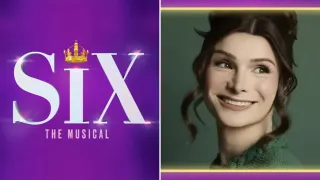December 17, 2017
'Call Me' Goes from Page to Screen
Brian Bromberger READ TIME: 3 MIN.
With all the raves that the new movie "Call Me By Your Name" has garnished along the festival circuit as perhaps the most anticipated gay film of the year, people are rediscovering the best-selling novel by Andre Aciman published a decade ago and recently reissued by Picador. Critics declared the book an instant classic, depicting a great gay love story between Elio and Oliver. The B.A.R. interviewed Aciman by email.
Aciman identifies as straight, making his convincing portrait of a beautiful same-sex romance a great accomplishment. For him, there was no incident that inspired the novel's creation. "The story started with a house and trees, a swimming pool, then took a totally unforeseen turn. I just followed, and sometimes when it hesitated, I gave it a slight nudge." Aciman claims that no one has ever asked if he is gay. "As a rule I don't like to discuss my private life. What they presume is their business, not mine." Does he see any differences in intimacy between straight and LGBTQ relationships? "I think the intensity of intimacy, when it happens, is the same everywhere, regardless of one's sexual orientation. Sex can happen with no intimacy, just as romance can blossom without sex. But then again, the libido, once stirred, is the same, so far as I know, in both."
Aciman adores the film, even though he played no role in its making. How does the book differ from the movie? "The film could not treat the whole novel, so there is this fundamental and significant difference. But the emotional impact is powerful in both, so what the film needed to elide doesn't really matter. What interests me as a writer is to see how a brilliant director manages to recreate in moving images what seemed totally and inexorably bound to prose. A gaze on film is worth three pages of introspection, and an intercepted aside that took a second to film can say more than an entire paragraph. I am baffled by the genius of film."
What did Aciman think of the producers choosing the gay 89-year-old director James Ivory, of Merchant/Ivory fame, to write the script? "I think James Ivory has an instinct for making choices that I found simply humbling. A prose writer can take winding roads a filmmaker cannot. He has to distill, to flesh out, to interpret, and at the same time to capture what a writer is normally at leisure to excavate as much as he wishes. The script was perfect. The scenes that I labored over were in fact rendered verbatim in the film, so James knew there were moments in the novel when the exact choices of words were the right ones. Where the writer in me went on a bit, he simply edited. I don't think a gay person was better suited to write the script. James was simply immensely talented."
Much has changed in mainstream society's acceptance of LGBTQ people in the decade since the book was written. Aciman feels it's not so much LGBTQ people who may profit from reading the book, other than to see that "desire and love, in whichever form they come, are always good." Rather, he believes their parents may benefit more. "I don't want people to see the film and cry when they wish their parents had spoken to them the way the father speaks to Elio. I want the parents to cry and say, 'This is how I, too, promise to speak when the times come for me to speak to my son or daughter.' Art should sometimes teach us to be better human beings."
Aciman recommends moviegoers read the novel. "If they loved the film, which is truly impossible not to love, and don't want to lose the feelings the film stirred up, they'll want to linger in Elio's and Oliver's summer. If they fall in love with them, they'll want to live with their love. If the film is an extension of the novel, the novel now is an extension of the film."
Why has the film struck such a chord with audiences? "The film and the novel free gay love from prejudice, violence, and sickness. Perhaps 10 years ago this was not possible, but it did take 10 long years for the right combination of actors, directors, and producers to converge. There were people who knew all along this was going to be a huge success. I owe them everything. This story is not sad because it is about gay love; it is sad because, as I say in the novel, time makes everything sad. Time just happens to all of us. But in their love, Elio and Oliver are the most mirthful, happy lovers I've ever seen or read about."






